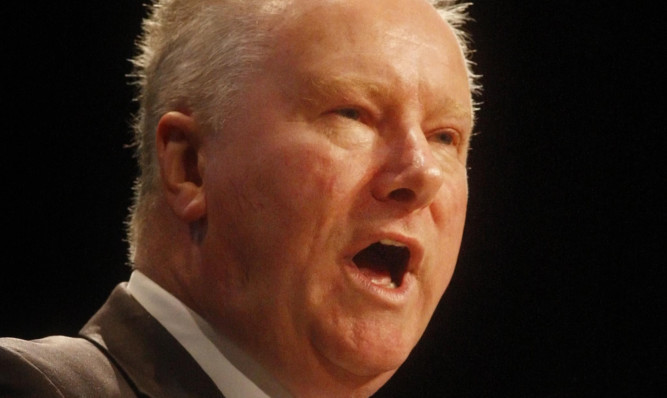The Scottish Government has pledged it will not follow in the footsteps of Westminster and prevent charities from using taxpayers’ cash to lobby ministers.
Social Justice Secretary Alex Neil said the measure, announced earlier this month, could have “serious implications” for the voluntary sector.
It comes after the Cabinet Office announced a new clause is being inserted into grant agreements aimed at making sure that taxpayers’ money is spent on improving people’s lives and good causes, rather than lobbying for new regulation or increased funding.
But it has been branded a “gagging clause” by opponents, who claim the measure is “draconian”.
Mr Neil said he would be writing to the UK Government “urging it to consider the serious implications of this new clause and the impact it will have on the third sector”.
He confirmed the Scottish Government will not be adding the clause to its grant offer letters, adding: “This planned change could make it difficult for some third sector organisation to highlight the issues that are affecting some of the most vulnerable people in our society.
“The Scottish Government will continue to work with stakeholders to take a co-produced approach to the development and implementation of policy and we have appropriate and well-designed controls in place to ensure that public money is spent for approved purposes only.”
The UK Government has insisted the clause will not prevent charities and other organisations in receipt of its grants from using privately-raised funds for lobbying campaigns.
The system has been trialled in grants provided by the Department for Communities and Local Government, with ministers saying it has hindered the ability of charities such as Shelter from lobbying on housing legislation.
The move follows work by the right-of-centre think-tank the Institute of Economic Affairs (IEA) into so-called “sock puppets”, where taxpayers’ money is handed to pressure groups which then campaign for policy changes or extra money.
John Downie of the Scottish Council for Voluntary Organisations said: “We fundamentally reject the notion that government funds should not be used to resource lobbying, campaigning or informing public policy. Voluntary organisations not only have a right to campaign and lobby government but a duty to do so.”
Enable Scotland said it believes its work could be affected by the new rules, with the charity’s Jan Savage saying: “The use of unrestricted charitable funds allows us to create a platform for people who have learning disabilities to campaign for what really matters to them.
“We have campaigned with our members on issues like education for all and the closure of long stay institutions. Our #StoptheBus campaign achieved a significant change for people who have learning disabilities by resolving a policy issue that had seen people with learning disabilities lose their access to a bus pass.
“It was a real victory for people who have learning disabilities, who spoke up and campaigned on an issue that matters to them and is a perfect example of what third sector organisations like Enable Scotland can do to improve the lives of others through campaigning.”
